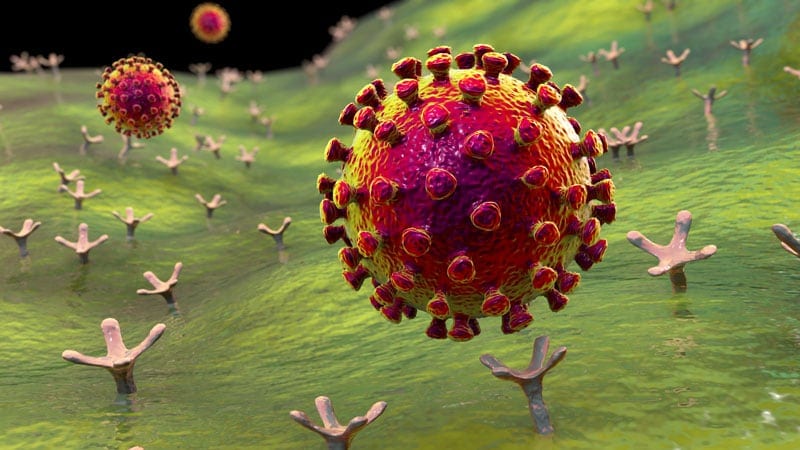May 6, 2022 — A group of U.S. scientists have developed a lab test that can quickly identify which variant of the coronavirus has infected someone who tests positive for COVID-19, according to a recent reportpublished in The Journal of Molecular Diagnostics.
The test, which can identify all current variants of concern and potentially future ones, could help health officials track the pandemicmore easily and help doctors treat patients more effectively.
“We were able to make a PCR test, just like the ones involved in a normal COVID-19 diagnosis, that detects not only the SARS-CoV-2 virus, but also identifies which variant is present,” Ryan Dikdan, the lead study author and a public health doctoral student at Rutgers University, said in a statement.
“This is significant because we can now identify the variants as they emerge in every sample, very rapidly,” he said.
PCR tests use a technique known as the polymerase chain reaction, which allows scientists to take a small sample of DNA and amplify it to a large enough amount to be studied.
Most current PCR tests for COVID-19 only detect the presence of the coronavirus and don’t identify a particular strain of the virus. Public health officials have struggled to track the different variants throughout the pandemic with researchers obtaining physical samples and running a complex genetic sequencing process.
The new test uses “molecular beacon” technology, which deploys microscopic probes to seek out molecules that carry genetic information to make proteins. The probes are so precise that they can distinguish between different gene-sequence targets that may only differ by a single chemical base. Once the probes latch onto the target, they become fluorescent and serve as a “beacon.” That information allows scientists to determine the coronavirus strain.
The Rutgers test can detect eight different mutations on the spike protein that the coronavirus uses to attack human cells. The eight mutations have been identified in current variants of concern and are common ones that increase the transmissibility of the virus and escape immunity. That means the test will likely be effective in the future for detecting new variants that use a combination of these mutations.
Rutgers researchers want to share the technology with other labs and testing companies for free so information about variants can be readily available.
“Since PCR machines are now almost as common as coffee machines, strain typing can be done anywhere without missing any cases,” Sanjay Tyagi, the senior study author and a professor of medicine at Rutgers, said in the statement.
“The test will enable more accurate treatment for severe COVID since a rapid PCR test to identify the variants can now be carried out in the local hospital setting,” he said.
Source: Read Full Article



